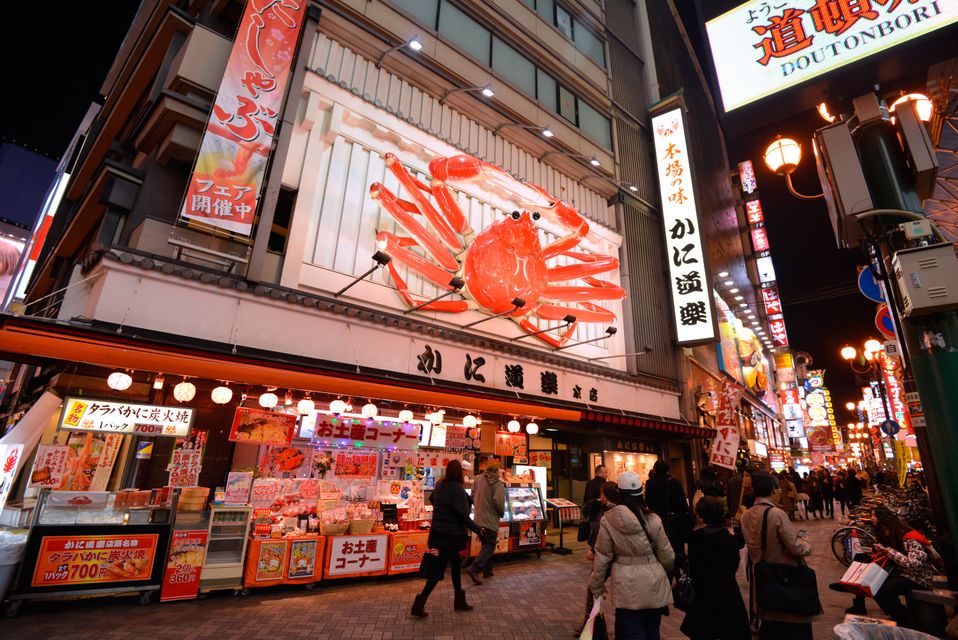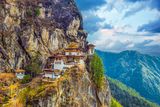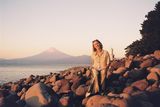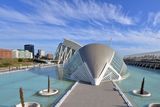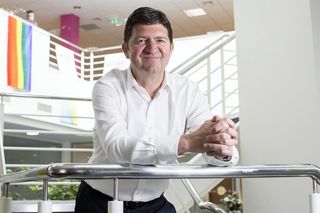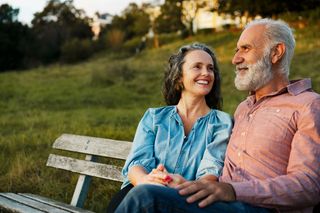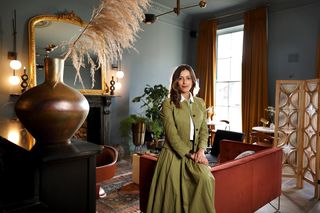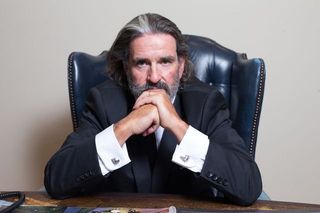Land of the Rising Fun: 48 hours in Osaka, Japan's foodie capital
Osakans are chatty, fun-loving and, most importantly, they live life to eat, says Mark Evans
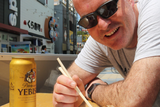
I'm in Japan two hours and already I've sucked on octopus balls, knocked back sake, belted out Oasis in a karaoke bar and managed to lose my suitcase.
Welcome to Osaka.
With the Ireland rugby team already landed, and thousands of fans set to descend on the nation, the world's eyes are going to be on Japan this autumn. And if you're going - or the tournament whets your appetite for a future trip - you won't regret it.
First up, it's not going to be a culture shock. Forget those ideas you might have of flying robots, water melons that require a week's salary and a language that's going to leave you all at sea.
Yes, Japan is different, but with a bit of common sense you'll navigate around without too much fuss.
With Ireland playing Russia in nearby Kobe (30km away), Osaka should be on your list for at least a day or two's break in between games.
Mark Evans tries karaoke in Osaka
It's best described as Japan's Glasgow. Nearby Kyoto has all the temples and history, while Tokyo (two and a half hours by bullet train) is known around the world. But locals in Osaka will tell you that (like Edinburgh) the Kyoto locals are cold, while natives of Tokyo are stuck up. Well, so they say.
My missing suitcase is a, well, case in point. Left at airport arrivals, it was still there when I got back, and I was aided in my search by what seemed like the entire airport police force - with no fuss at all.
Locals in Osaka are friendly, and time and again I was helped to find my way around by passers-by, train drivers and railway ticket officials. Even if their English isn't brilliant, they will take time to help - and I reckon they'll be going all-out when the world's fans arrive.
Osakans are proud of what makes them different - forget the polite and quiet image of the Japanese, Osakans are also chatty, fun-loving and, most importantly in the food capital of Japan, they live life to eat, seemingly around the clock. Travelling alone, I'd booked a guide to give me a crash course in local living through a recommended agency, City Unscripted, which works out what you want to do in the area - whether it's art, culture, sightseeing or shopping.
My interest was bars, the best way of getting to know a city. My guide, Brazilian-born Roberto Padraca, has been living in Japan for years and is fluent in the language. Better still, he knew all the spots where the locals go, away from any tourist traps. While its historic castle is worth seeing, Osaka is not about must-see sights - it's all about the back streets and vibe.
First stop was the district of Shinsekai, developed before the war as a mix between Paris and New York's Coney Island. Dominated by the Eiffel Tower-like Tsutenkaku Tower, it's a playground for locals, with scores of restaurants, bars, retro video-game arcades and funfair-style shooting galleries.
Downtown Dotonbori, Osaka. The giant spider crab sign wriggles his legs 24/7.
Roberto got me living like a local, grabbing a few beers from the local convenience store and ordering the local delicacy, takoyaki - battered octopus balls mixed with onion and ginger. You'll need an asbestos gob, as they are scorching hot, but the sauces are to die for. A very cheap lunch - think about €3 to €4, including beer.
Of all the clichés, the one about karaoke holds true - young and old love it here. We stopped in a local bar/restaurant in the area's market arcade, where over a few beers (typically around €1.50) and some sake (€2 or less per glass) we made friends with fellow pub-goers singing a few tunes and eating cheap chicken skewers.
Not a bad way to spend a sunny afternoon, with no one in much rush to do anything. So scratch that idea of the work-crazed Japanese too.
Drifting into the Osakan way of doing things, we went to eat - again - this time trying another famous dish, okonomiyaki, in a family-run restaurant that's popular with locals. Okonomiyaki is basically an omelette-like concoction, containing veg and meats such as pork, and smothered in sauces, and cooked on hot plates in front of you.
Osaka castle with the cherry blossoms in spring
It's incredibly filling and the owners were typically Osakan: honest to a fault, they'll organise the cheapest drinks, if that's your thing, and, as is customary, tipping is a no-no: they'll carefully count out your change as they hand it back.
One odd thing - for such an advanced country - is that cards are rarely used, and tipping is unheard of. Cash is king in most places, and you hand it over - and receive it - with two hands in a polite fashion. And forget about the image of pricey sushi and genteel cups of tea - the food here is plentiful, filling and cheap.
Osaka's a sprawling city of over eight million people with not one but two city centres - the north one is around Umeda, where you'll find all the western shops and restaurant chains - while the southern centre is in the Namba area, with a lot of bars and local nightlife.
I was lucky enough to be staying at the Conrad Osaka, the city's best address, situated on a little island in the heart of Osaka and boasting the best view over the neon-lit skyscrapers that are straight out of Blade Runner. It's a hotel that impresses at first sight - the lobby is 40 floors up, and filled with artwork, while my room was big enough to hold half a dozen people, the electronic blinds opening up an incredible view.
By night, Osaka comes alive with people who know how to party. A great way to meet those in the know and join a group going out is through Airbnb Experiences, bookable online.
First up was a night in the Kyobashi district, visiting three restaurants with local guide Aki, who's fluent in English, having spent years living in Chicago.
Raw chicken in Osaka
She got me out of my comfort zone with one of the big culture shocks of the trip - trying chicken. Well, not any old chicken, a plate of raw chicken without sauce (don't try this at home, kids). Safe if it's eaten quickly here, I had a time limit to gulp down a selection of little hearts, livers, breasts and intestines. Not top of my takeaway list, but much tastier than expected! She was also a mine of information on the 'geek' culture (mainly men).
Denden town is their hang-out spot, with electronics shops, dozens of Manga comic stores, more adult places and a selection of bizarre maid cafes, where young women dress up as French maids and serve stuff like teddy bear cakes to grown men. Hmm. Truth be told, if I could find the right plumber, I would have brought home my ideal present - an electronic toilet seat (from around €250 at the seven-storey Bic electronics store in Namba), complete with built-in bidet and hairdryer.
Next night, another side to Osaka - checking out restaurants and the underground music scene on another Airbnb experience, this time in the Namba and Dotonbori areas.
Run by local guitarist, English expat Kevin, it was a night of food, beer and a lot of exceptionally talented bands on the underground rock scene in a city that's regarded as having the best nightlife in the country as it's concentrated in walkable areas, rather than spread out in Tokyo.
So, culture shock?
Not really, but I came away with the funny feeling that maybe they do things opposite to us for the craic. Smoking is a no-no on main streets, but people happily light up in bars and restaurants. Jaywalking is frowned upon, but shops of an adult nature and magazines with scantily-clad young women are normal.
A bit different, a bit crazy to us, but while it's a country that's a long trek, the warmth of the welcome will make every mile there worth it.
How to get there
Mark flew from Dublin to Osaka as a guest of Air France via Paris Charles De Gaulle. Prices are on special offer up to next year from €687 return in economy. There's also a special deal - with savings of up to 40pc - at the moment in premium economy, which offers even more legroom, priority boarding and more baggage.
Business class fares are good too, with high class dining and wine and exceptionally friendly service in the all-new cabin onboard Air France's Dreamliners, which are designed to minimise jetlag. All classes have huge seatback screens and wall-to-wall entertainment. airfrance.ie
Where to stay
Mark stayed at Conrad Osaka, which has the ultimate views of the city. Better still, in a city that's buzzing with energy, it's a home away from home with friendly service and modcons including heated indoor pool with sensational views across the city, particularly at night. Rooms (huge) from around €300 a night for five-star luxury. They're so big you might not want to venture outside. conradhotels3.hilton.com/en/hotels
Getting around
Don't think about a taxi from the airport, unless you want to cough up €150. I booked a return on the futuristic high-speed train to Namba station in the city, a two-day metro card and a six-day 4G sim card (vital for Google Maps and Google translate locally) with 1Mb of data for €36.04 through the dependableklook.com site, picking up my cards at the airport.
Fun stuff
Read more:
Read more
Join the Irish Independent WhatsApp channel
Stay up to date with all the latest news

